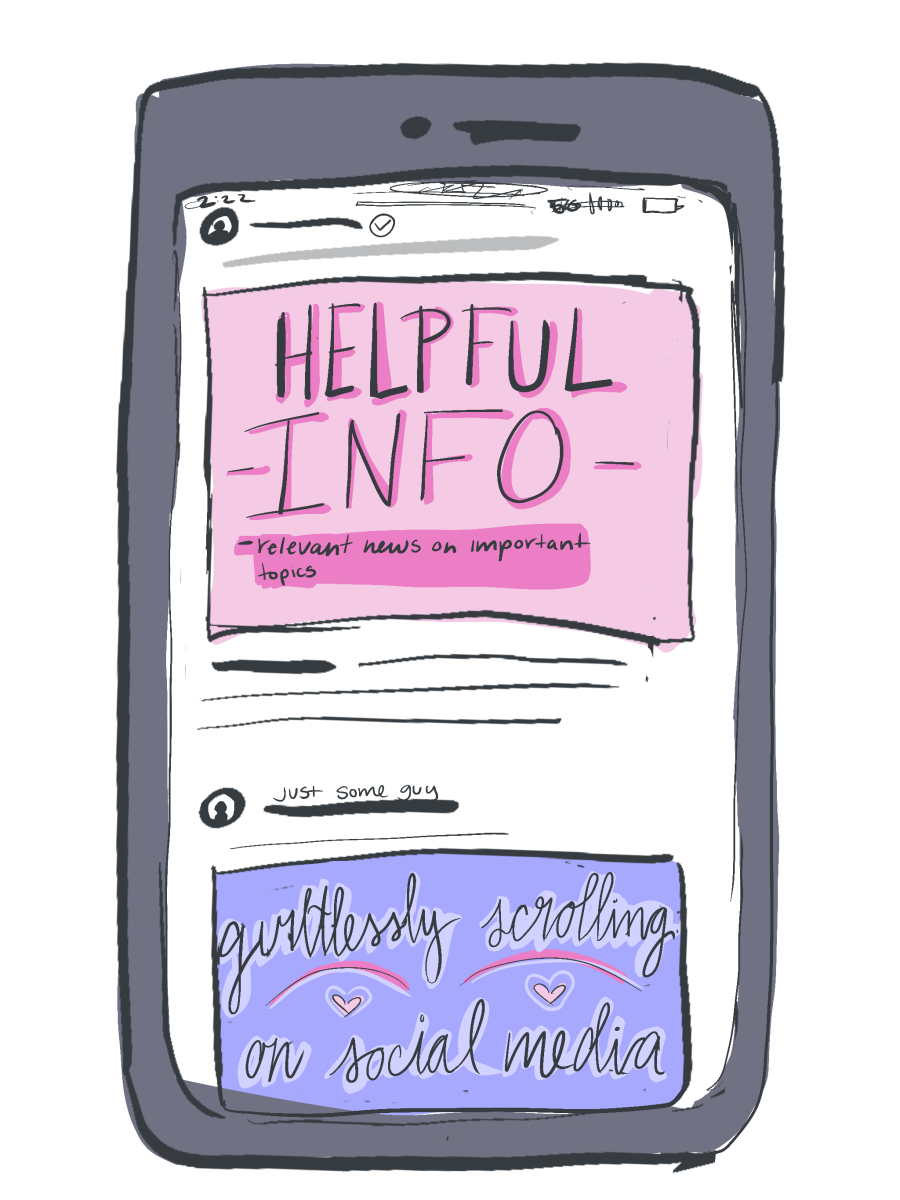Jacob Palmer:
Information and ideas can be shared faster than ever to massive audiences through social media. Its decentralized structure lends itself to discourse on subjects that might not be normally covered through other forms of communication, resulting in a new surge of activism. Though social media has played a critical role in many recent social justice movements, social media activism can often lead to an internal justification of inaction which decreases net contribution to the cause.
Many activist causes on social media are short-lived. We can be aware of so many more events across the world than ever before, but the paradox of choice runs amok and our attention span to news decreases. Months ago, all eyes were on the Uyghur cultural erasure and internment camps in western China. Lately, though, social media has barely mentioned it, even though the genocide remains ongoing. There has been no considerable spike in the search term “Uyghurs” on Google since summer 2023, even though the Chinese government has implemented stricter control over Islamic religious practices as recently as January of this year.
The high turnover rate of social media activism trends isn’t the only issue, as some have even directly worked against their intended cause. The “Black Out Tuesday” social media posts from 2020 are a good example of this. The trend actually harmed organizational protest for the Black Lives Matter movement by clogging up related hashtags and search terms, making it harder for activists to distribute donation information for those in need. Similarly, the concept of “performative activism” has emerged to bring attention to corporations and influencers co-opting these movements on social media to expand their brand or directly profit from them.
A common argument made in support of social media activism is that it raises awareness — and of course, when compared to traditional network news sources, social media can be an extremely useful tool. But the question is: Who is your reposted Instagram social justice infographic story actually educating? Social media is designed to cater to your beliefs and interests. For many of us, myself included, our follower base could be classified as an echo chamber. This is not to say that anyone is at fault for this, but it is important to recognize the realistic lack of effectiveness of reposting these messages in a space that naturally favors like-mindedness.
Social media activism can diminish the likelihood of someone taking more concrete action. A study from Oxford University Press found that “engaging in these forms of public support activates a desire to present the self in a positive light, and once this desire is satisfied the token act may not lead to increased support for the cause.” Guilt and discomfort are important forces in driving true action and, intentionally or not, social media activism can relieve this pressure and hinder it.
It is, of course, unreasonable to argue that social media activism does not contribute to causes. An unbelievable number of things have been accomplished through social media. The same Oxford University Press journal referenced earlier found that, in cases where people were directly affected by a cause, they were more likely to take further action after an act of public token support than those who did not. It is imperative to be aware of why we post what we do, what we want to accomplish, how the structures in place will aid or hinder our goals and most importantly, what further actions we will take next. Stew in the discomfort of inaction; it is a tool of motivation and accountability. Never become complacent.
Colin Houston:
Social media platforms get a lot of warranted flak, but the tendency of many to think of social media as purely a distraction and something that exists outside of the “real world” is misguided. As it applies to political activism, social media is a profoundly important vehicle for individuals and groups to advocate for beliefs and push for social change. While it’s true that social media cannot lead to change on its own, as nothing really can, it would be a mistake to label it broadly as a waste of time as it applies to politics.
In recent years, the rise of the radical right has, unfortunately, demonstrated the power of social media. You need not look very far online to realize how many people have been at least partially indoctrinated by far-right ideology. Politics in the U.S., Europe and beyond have been taking a hard right-wing shift over the past decade, and social media has played a staggering role in this phenomenon. Social media has clearly demonstrated itself as a powerful tool, and so the logical thing for the left to do is use it to fight back.
The Black Lives Matter movement was driven in many important ways by social media activism, and it has led to a major shift in U.S. public opinion about police, pressure on lawmakers to pass legislation targeting police brutality and even significant decreases in police homicides. After the beginning of Israel’s current campaign in Gaza, the use of social media by Palestinians in and out of Gaza allowed the issue to stay firmly in the public consciousness, leading to changes in public opinion regarding Israel’s actions and to large amounts of aid being raised for Gaza.
Of course, social media activism is not the whole story here, as the prior two movements and many others have also involved massive protests and public disruption, which are generally key factors that allow movements to succeed. My point is not to argue that social media activism should replace actual public protest or direct action; rather, it is that social media activism is as important as any type of activism, and that mastering the use of social media for communication is critical for any social movement to succeed in the present day.
With that said, as pointed out by the opposing column, not all movements are able to stay in the public eye for as long as those I pointed out, and many people treat them like trends. This is a genuine problem, and showcases how social media activism can relieve people’s discomfort and guilt to an ultimately detrimental end. However, people also possess significant power through social media to draw attention to issues, whether they’re widely discussed or not. Further, while social media can become an echo chamber, I can speak from personal experience in saying that at times, seeing posts on social media about movements I already supported was still extremely important in reminding me about them and prompting me to share further or take action.
It is fair to say that one must be careful not to slip into complacency when using social media, and that perhaps many who participate in social media activism could be spending their energy doing something that might be more effective. The fact remains, however, that social media activism is effective. Forcing people to confront and spend mental energy processing important issues is a critical element of protest and disruption, and social media is a great platform for this type of activism. And for those who are unable or, however condemnable this may be, unwilling to take direct action themselves, social media activism is at least a way to spread the word to people who will.







